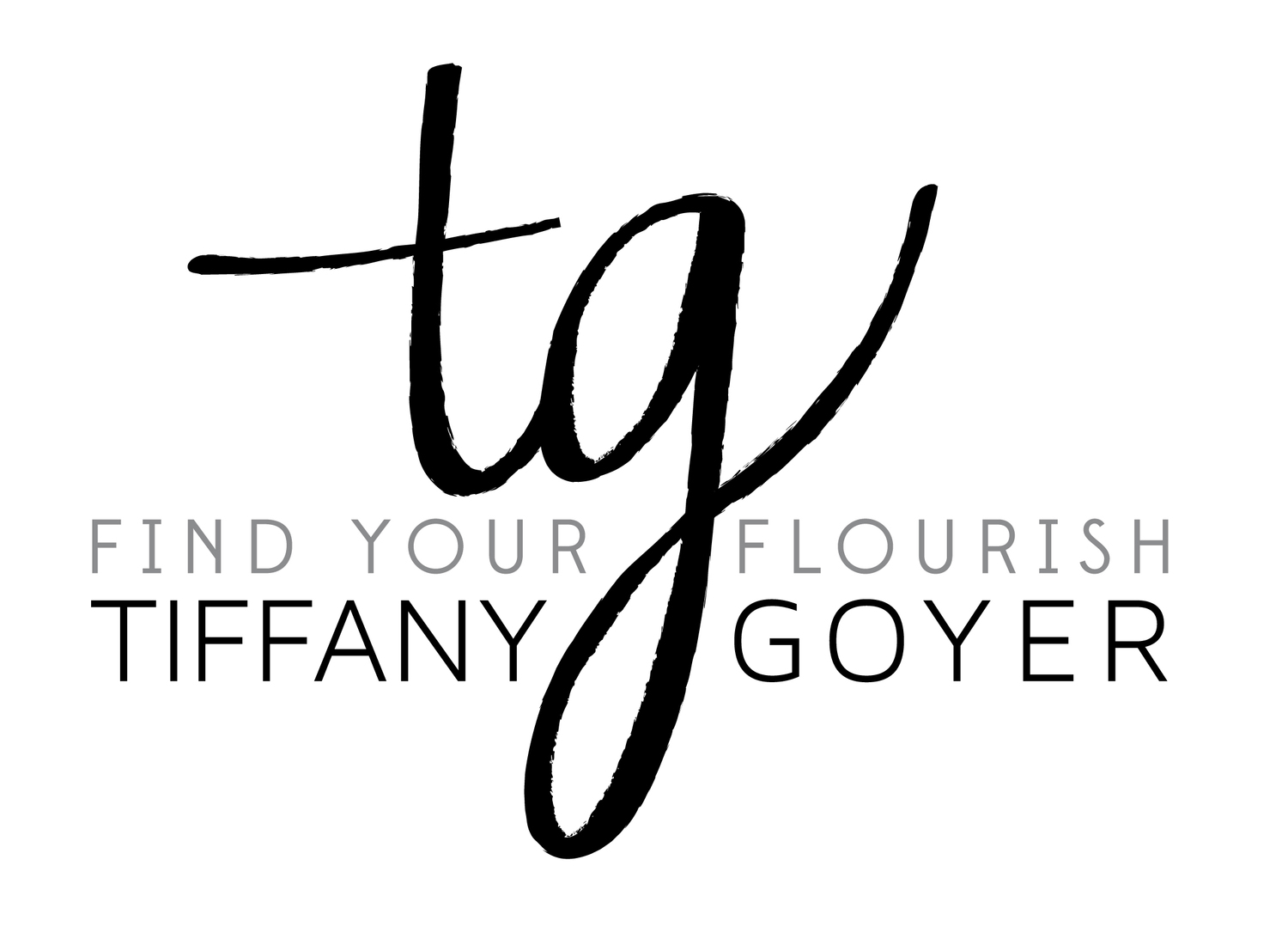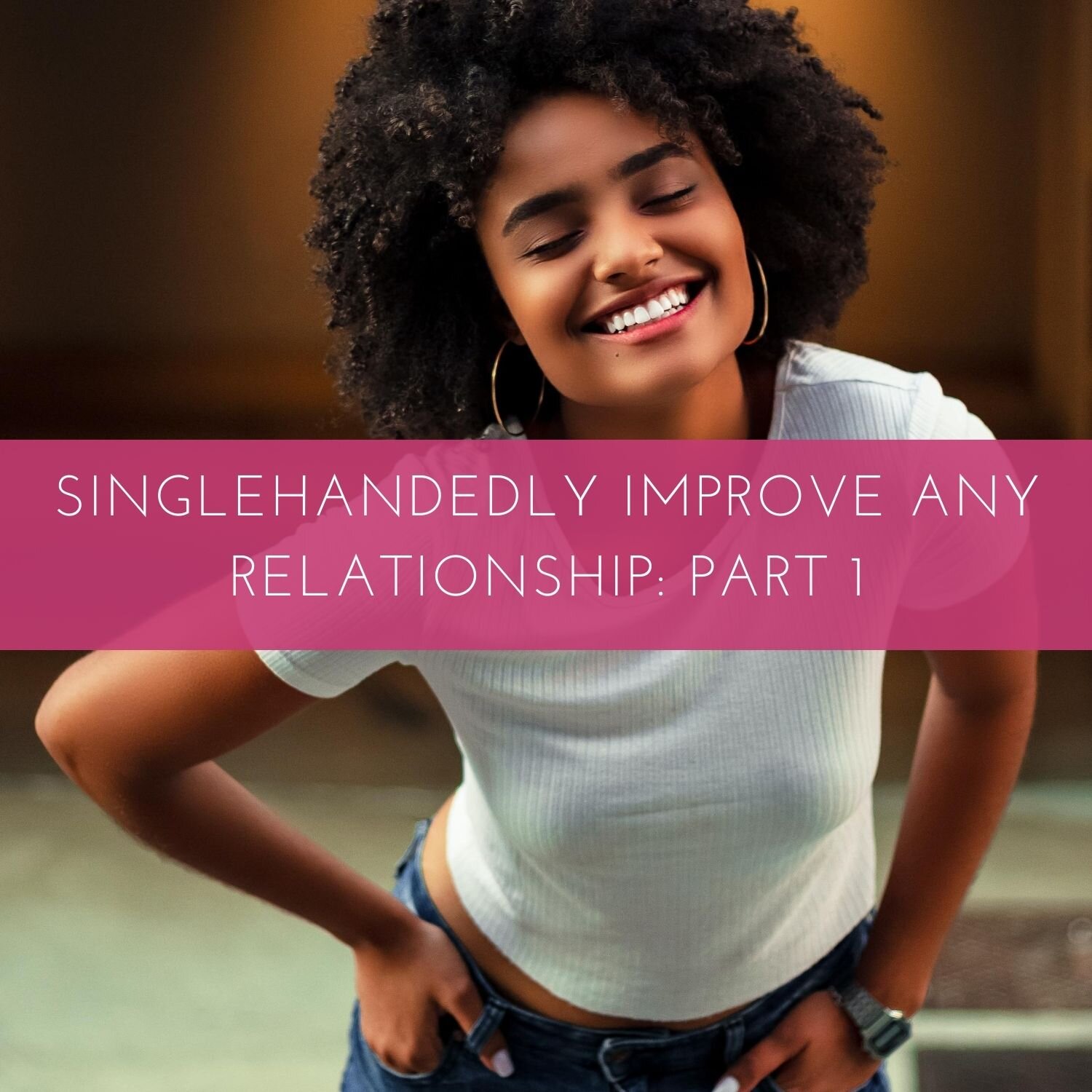A few weeks back, we walked through a 5-part series on relationships together. We covered how our relationships are just thoughts, unconditional love, establishing healthy boundaries, making space for autonomy, and our relationship with ourselves.
Since then I’ve had several readers reach out to ask how to handle relationships where you’re “in it by yourself”—when you’re in a relationship with someone who isn’t interested in couples therapy or couples coaching or working on interpersonal dynamics.
How do you move forward alone? Are you expected to just throw the whole thing out the window if it isn’t working?
Can you really create change by yourself?
YES!
Psychology and conventional wisdom have told us time and time again that we can’t “fix” anyone else…so how do we work on relationship issues singlehandedly? Is that even possible?
I’d like to think that it is. And I’m not alone. A dozen or so very influential teachers and authors both psychotherapists and coaches have spoken written on how to improve your relationships on your own. Frankly, having specialized in couple’s therapy for 10 years with my adjunct work through The Couple Center in Los Angeles, taking responsibility on your own to improve the relationship is the best way to go.
If both partners can do it even the better. But even if one of you learns these skills, the two of you will be better off. Taking everything I have learned from the various experiences, training, and teachers, and client experiences I’ve had, I’m offering my own insights on how best this can work for you and your loved one.
I am in no way saying that *every relationship* can be restored and/or renewed. Some are just not meant to be and will fall apart, no matter what we want to happen. And, to be quite honest, some definitely should dissolve—they are not good for us or our growth as individuals. Again, you can be 100% into being the one to work on the relationship alone and your partner may not budge enough for you to stay, or things may still feel overall wrong and you may choose to leave.
Still, the work is worth doing, because it empowers you to feel good no matter how you think the other person is. We all have moods, we all have upsets and bad days and periods of time. It is not someone else’s job to make you feel good, it is yours and vice versa. Once you not only get this concept intellectually but emotionally, your relationship with yourself and anyone in your life has the opportunity to make drastic changes for the better which is awesome. But even better, you get to feel a sense of security and trust in yourself to meet your own needs no matter what you get or don’t get from your partner (or family, or friends—more about this later).
But for those that we care deeply about, the ones where there seems to be tons of potential, what can we do on our end? How can we use our lane to improve a two-way street?
First, it’s important to find support. Recruit a friend, a therapist, or a coach—someone that’s not too close to the other person you’re in a relationship with—to bounce ideas off of and support your work. You may ever try an online support group of people who may be interested in working on the same concepts with you. You don’t have to do this alone or in a vacuum, and it’s not recommended. Pick someone you trust and that you think will be fair and loving toward you and your goals. I recommended getting a professional for the first 12 weeks to help you master the skills, as they can be challenging, but even reading this blog and implementing what I write about can help you tremendously.
Not Sure If You Should Stay or Leave?
If you come to this and you’ve been considering ending the relationship, the first thing I want you to do is make a good old “pros and cons” list. Write down all the things you love about your partner and the relationship, then all the gripes—the things that drive you crazy, from the BIG, scary stuff, to the tiny minutiae. This will help you see what elements are crucial (“dealbreakers”), and what you can let go as trivial.
Getting real with yourself and deciding whether your relationship is worth you working on is a big deal. Not for the other person, but for you. If you do your list and you are still unsure. It will not hurt for you to give it some time to work on the relationship experiments on your own to help you become clearer about what you ultimately want to do.
Feeling better and emotionally empowered
As I mentioned, first you’ll start feeling better about your choices on how to show up in life and in your relationship – no matter how your partner is, which is a huge relief and shows you just how empowered you can be over your own emotional life.
Second, you get to own all of your own stuff, and contrary to popular beliefs, that feels amazing to do. This is the work that you have to do no matter who you are in a relationship with. It’s key information for you to know. Whether you stay or go.
Third, if you do decide to end the relationship you will have fewer doubts because you will know that you cleaned up your side of things and that you cannot will another person to change. That part is not up to you. Or change enough to make it ok for you.
Forth, when you learn these skills, the person you are with WILL change.
That is the law of relationships. If one person changes the other has to in some way (even if it’s not the way you want).
But do you see how this can give you more information to help you make the right decision and not get stuck in indecision forever? And for those of you who just want to better your relationships do you see how beneficial this can be?
I’m telling you it is very empowering and enlightening. I have seen so many clients use these skills and in weeks, their partner is responding in more loving, kind, and positive ways, without the client making any request of their partner.
This is such a relief and so empowering to know that yes, you absolutely can do something in your relationship to make it better and you don’t have to get your partner on board. Now if you want to and they are willing to do the same work, great. But a lot of times, couples are not willing at the same time to do the work. Unfortunately, this leads to break-ups, and dissolutions of marriages that could have worked if only both were willing to “commit to trying” at the same time.
I have personally known many couples that have long since divorced that wish they never had, that they hadn’t let the anger and “fight to be right” stand in their way of making themselves feel better and show up the way they wanted to in the relationship and then see where it leads them as individuals and as couples. Sadly, some of these individuals seek out similar relationships with new partners, not that they consciously think that’s what they are doing in the moment, but as time goes on they see similarities between the partners they have chosen. Many times, they don’t do the work again that’s needed to show up as the best version of themselves no matter what’s going on with their new partner, repeat the old patterns, and never get to experience happiness in a romantic relationship. These are the individuals that often romanticize their previous relationship, which they now see could have worked, but they still don’t understand how. And having a new partner (by changing the circumstance/ the grass is greener complex) they realize it’s not so much better. What a bummer.
These skills I have to teach you will always allow for you to UNDERSTAND what’s going on here, ensure you feel less helpless in relationships and more confident, happy, reassured, and empowered.
This is exactly what each and every person needs to learn, I wish school taught you how to be in healthy relationships. I’ve always wished relationships could be taught from kindergarten to the time you graduate around 17 or 18 years old. Imagine how much more prepared we would be and how much happier people would be as a whole. Same goes for parenting, getting a job, and staying healthy in your work, money, and whatnot. But don’t give up on yourself, you can learn it now and here.
So, as you can see, it is worth doing this work even if you are in a healthy happy relationship because it will just help it stay that way.
The majority of my clients, unless they are very clear that they want to end a relationship, even if they’re steaming mad at their partners, still deep down love and want to be with them.
Taking back autonomy and deciding to do something about your interpersonal problems is a power move.
Whether you ultimately create lasting change or not, you’ll be more confident and assured of your place in the world. It’s a total win-win.
I’ll be back next week with more on this topic, where we’ll drill down into some specifics on how to take control, demonstrate leadership, and make change where none seems possible.
If you are in an unsafe or abusive relationship
You need to get help and get educated. Abuse needs to be dealt with differently than just using these skills.
If you’re are in an abusive relationship you do NOT need to feel ashamed, it’s not your fault. There is help out there. Look at (U.S.) The National Domestic Violence Organization. You can check online for the resources at https://www.thehotline.org/
Or call the National Domestic Violence Hotline for help at 1−800−799−7233 or TTY 1−800−787−3224 (calling may be better if you suspect your computer visits are being monitored).
Or text LOVEIS to 22522.








